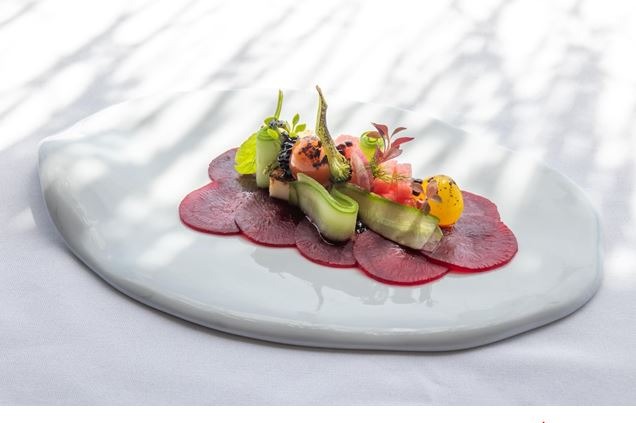The culinary arts span a wide spectrum of skills and knowledge from food preparation to restaurant management. If you dream of becoming a professional chef, attending a culinary arts school can provide you with the foundational skills needed to accomplish your goals. Keep reading to learn what it takes to succeed in culinary art.
Understanding the Culinary Arts
Culinary Arts is a vast field that combines creativity, precision, and knowledge. The core focus is the preparation, cooking, and presentation of food. Yet, it stretches far beyond the kitchen, to areas like food sourcing, nutrition, food history, and even the science of taste.
It’s a world that attracts those who are passionate about food and culture but demands dedication, time, and effort. A comprehensive understanding of the culinary arts involves a blend of practical and theoretical knowledge, both of which are critical to excelling in this field.
Studying culinary arts will expose you to various cuisines and styles of cooking, giving you a thorough understanding of the food industry. It’s an opportunity to learn the skills needed to transform raw ingredients into edible masterpieces.
To truly grasp the essence of the culinary arts, you need to engage in consistent practice, as the best chefs always refine and perfect their skills. One respected institution for this kind of training is the culinary school New York City has to offer: ICE.
Primary Skills Required for Culinary Arts School
Studying culinary arts goes beyond mastering cooking techniques–it also requires a unique combination of skills. Among these are creativity and imagination, which are essential for developing new recipes and plating presentations.
Skills such as teamwork and communication are also vital. In the fast-paced environment of a professional kitchen, chefs need to coordinate efficiently with the entire kitchen staff. This necessity means individuals must effectively communicate and collaborate with others.
Additionally, a solid understanding of food safety and sanitation principles is crucial to avoid cross-contamination or foodborne illnesses. These are just some of the skills you’ll need to thrive within culinary arts school and your future career.
Perhaps one of the most important skills is resilience. Culinary education and the food industry can be demanding, requiring strong stress management skills and the ability to work under pressure.
Cultivating a Passion for Culinary Innovation
Innovation in cooking is all about pushing the boundaries of traditional food norms and conjuring up unique, exciting flavors. Whether it’s inventive cooking techniques or creative sourcing of ingredients, innovation is a driving force in today’s culinary scene.
This passion for innovation can be nurtured in culinary school, where you can learn about various cooking styles, regional dishes, and experimental cuisine. The education enables students to broaden their culinary horizons and think outside the box.
With hands-on experiences, industry insight, and a supportive learning environment, students can foster their creativity and cultivate a burgeoning passion for innovation in the kitchen.
Guided by experienced faculty, you can experiment with flavor profiles, techniques, and styles, paving the way for fresh, new culinary experiences.
Importance of Hands-on Experience in Culinary Education
While theoretical knowledge provides an understanding of culinary fundamentals, hands-on experience is pivotal for aspiring chefs. It’s the practical application of these fundamentals that solidify your culinary prowess. This hands-on experience is often gathered through in-class training and industry internships.
In these settings, students have opportunities to apply learned theories, sharpen their knife skills, and perfect their cooking techniques. They also gain real-world experience in managing a professional kitchen and an understanding of the fast-paced nature of the culinary industry.
These experiences not only enhance understanding but help build confidence, enabling students to transition seamlessly into their professional lives.
Subsequently, considering a culinary school that puts a strong emphasis on hands-on learning can be crucial for your education and career growth.
Challenges in Culinary Arts School and Overcoming Them
Like any educational endeavor, culinary school presents its unique set of challenges. For instance, the professional culinary environment can be physically demanding, requiring long hours of work in a fast-paced, high-stress environment.
Additionally, mastering technical skills such as knife techniques, cooking methods, and plating can be a daunting task for beginners. However, with time, practice, and persistence these obstacles can be overcome.
Another challenge is managing criticism, inherent in an industry where flavors, textures, and presentation are subject to individual preferences. Overcoming this involves developing resilience, continuously learning, and refinishing skills.
Last but not least, many students face financial challenges. However, scholarships and various options for financial aid are available, making culinary education more attainable.
Overall, the journey to becoming a professional chef can be a challenging but rewarding one. With the right mindset, a commitment to learning, and a passion for the culinary arts, you can indeed find your place in this vibrant industry.

